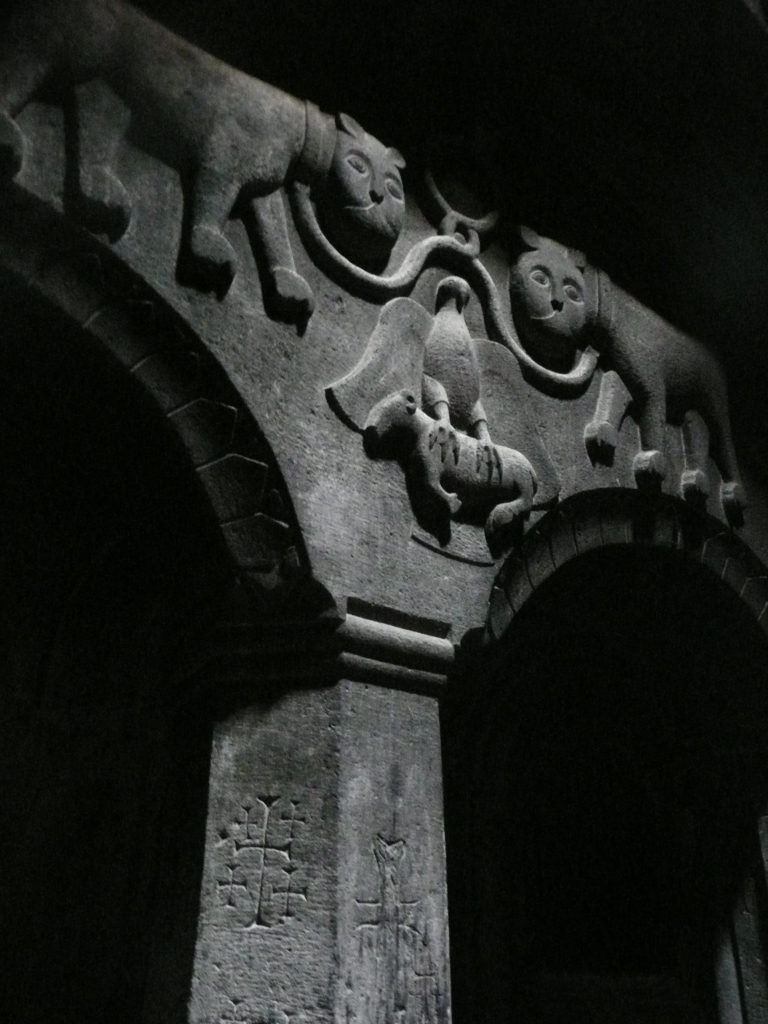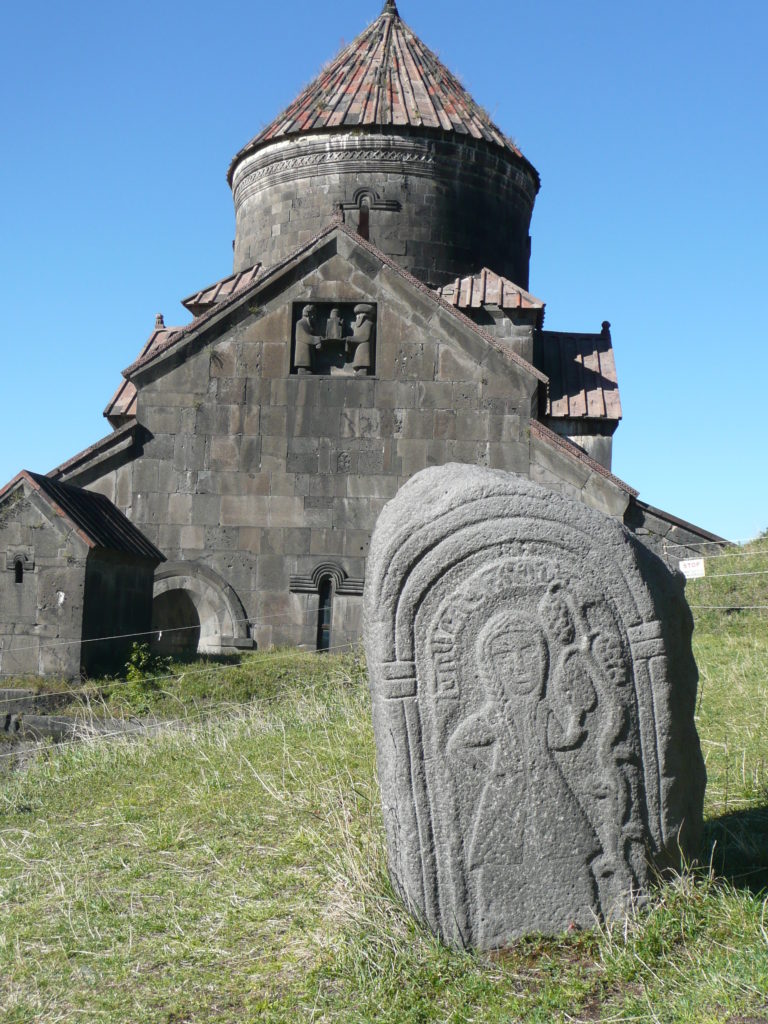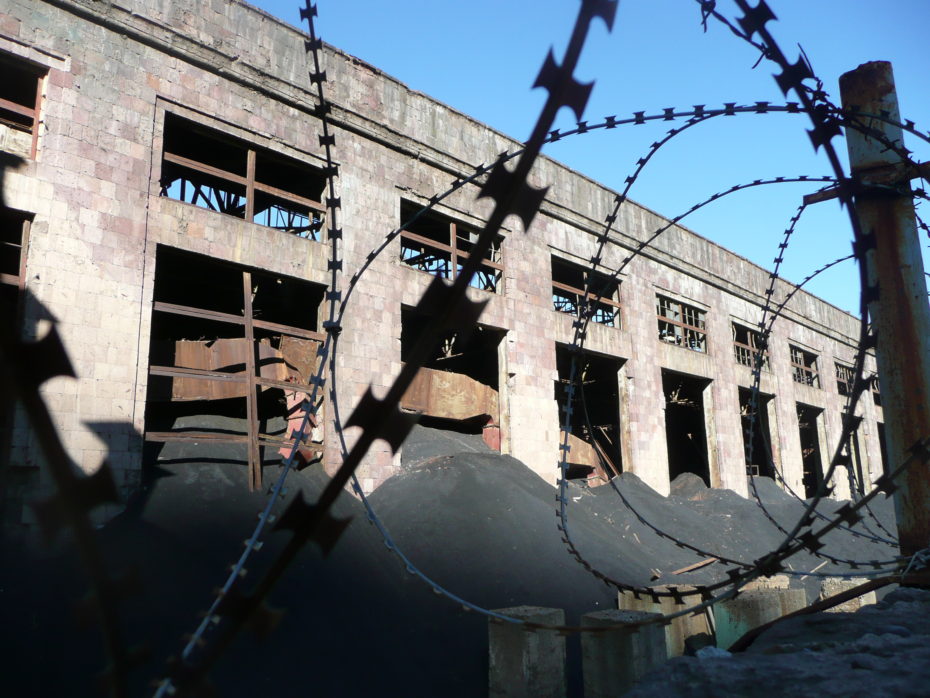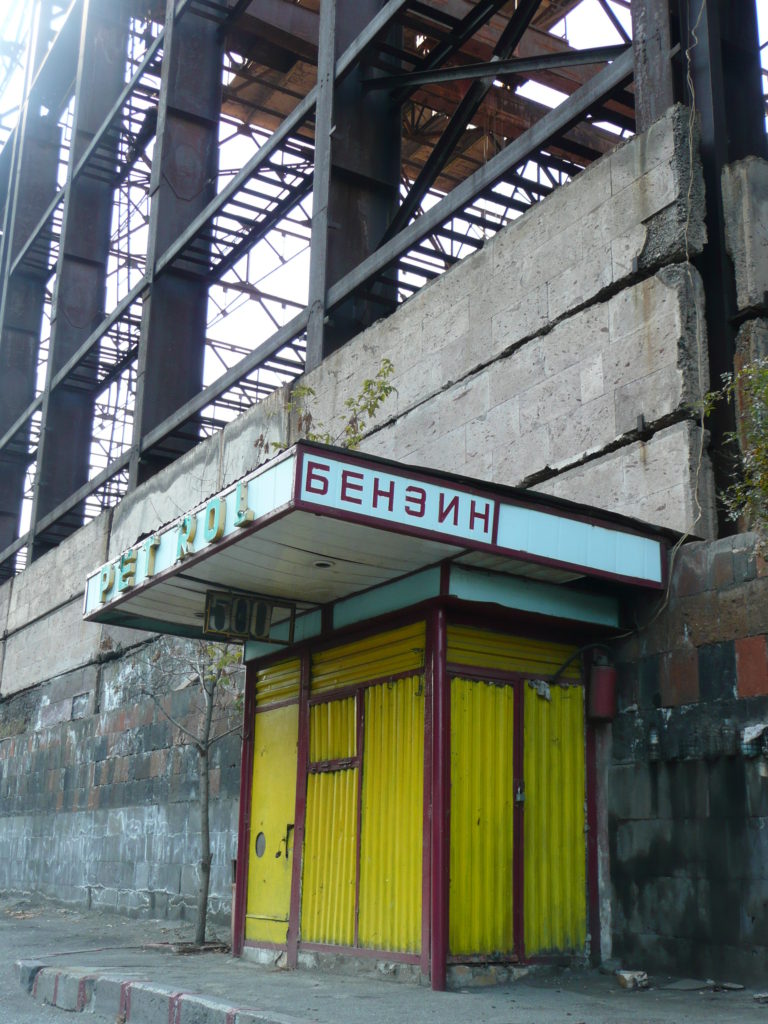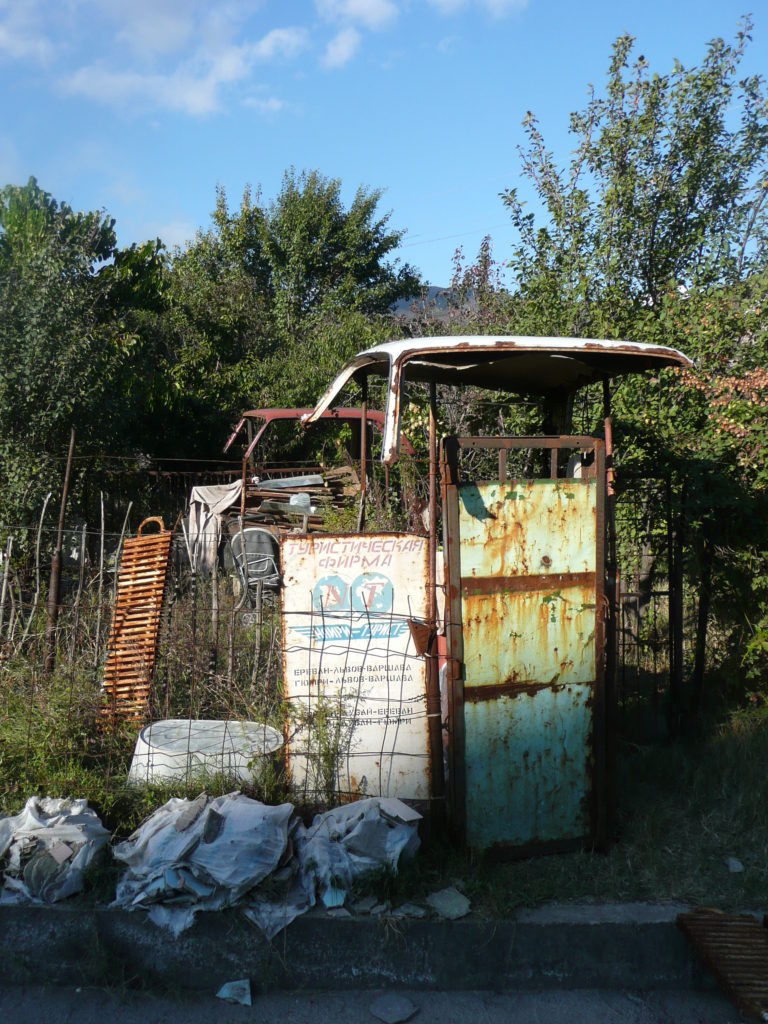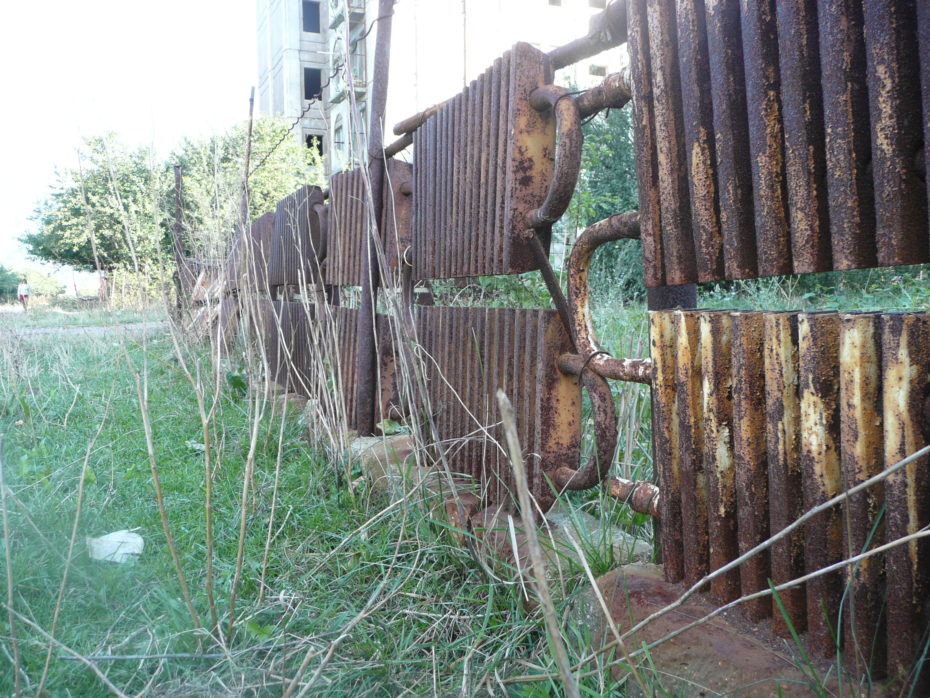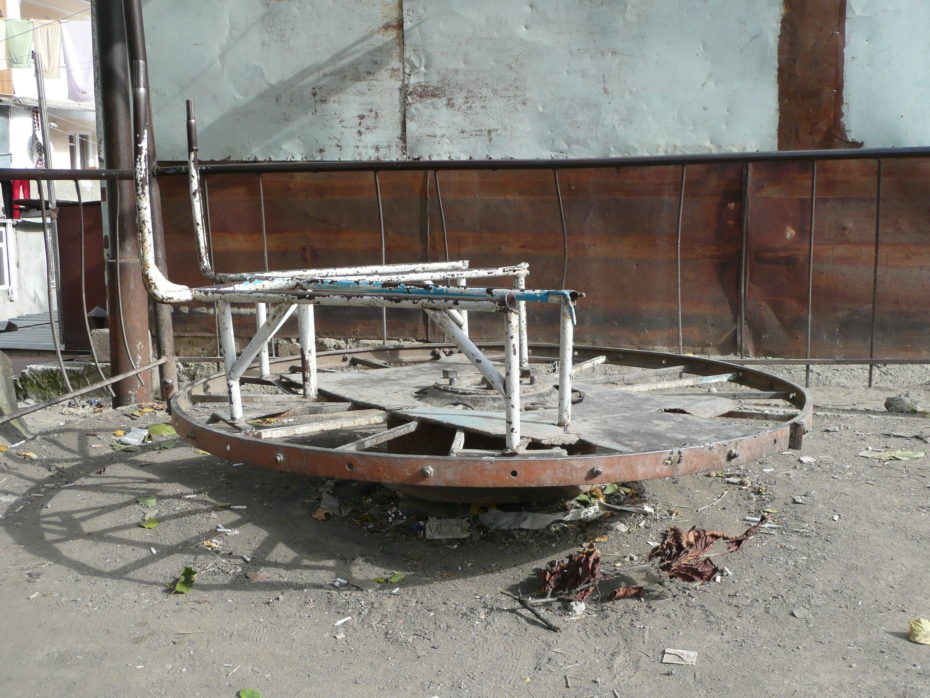History is everything in Armenia, particularly its Christian heritage. In fact to question someone’s religion can be seen as questioning their very Armenian character. Given that it became the world’s first Christian state in 301 AD (followed in the next few decades by Georgia and Ethiopia) one could hardly blame them for thinking otherwise. Decades of atheist communism made not the slightest dent in their belief.
So it comes as no surprise that the landscape is dotted with ancient monasteries and churches, buildings whose almost monolithic solidity firmly declare that they are not going anywhere and periods of Muslim rule or communist suppression were just a passing breath in their ancient lives. The people themselves can trace their origins back to at least 600 BC so its unlikely there is a lot of soul-searching about what it means to be Armenian, at least in a historical context.
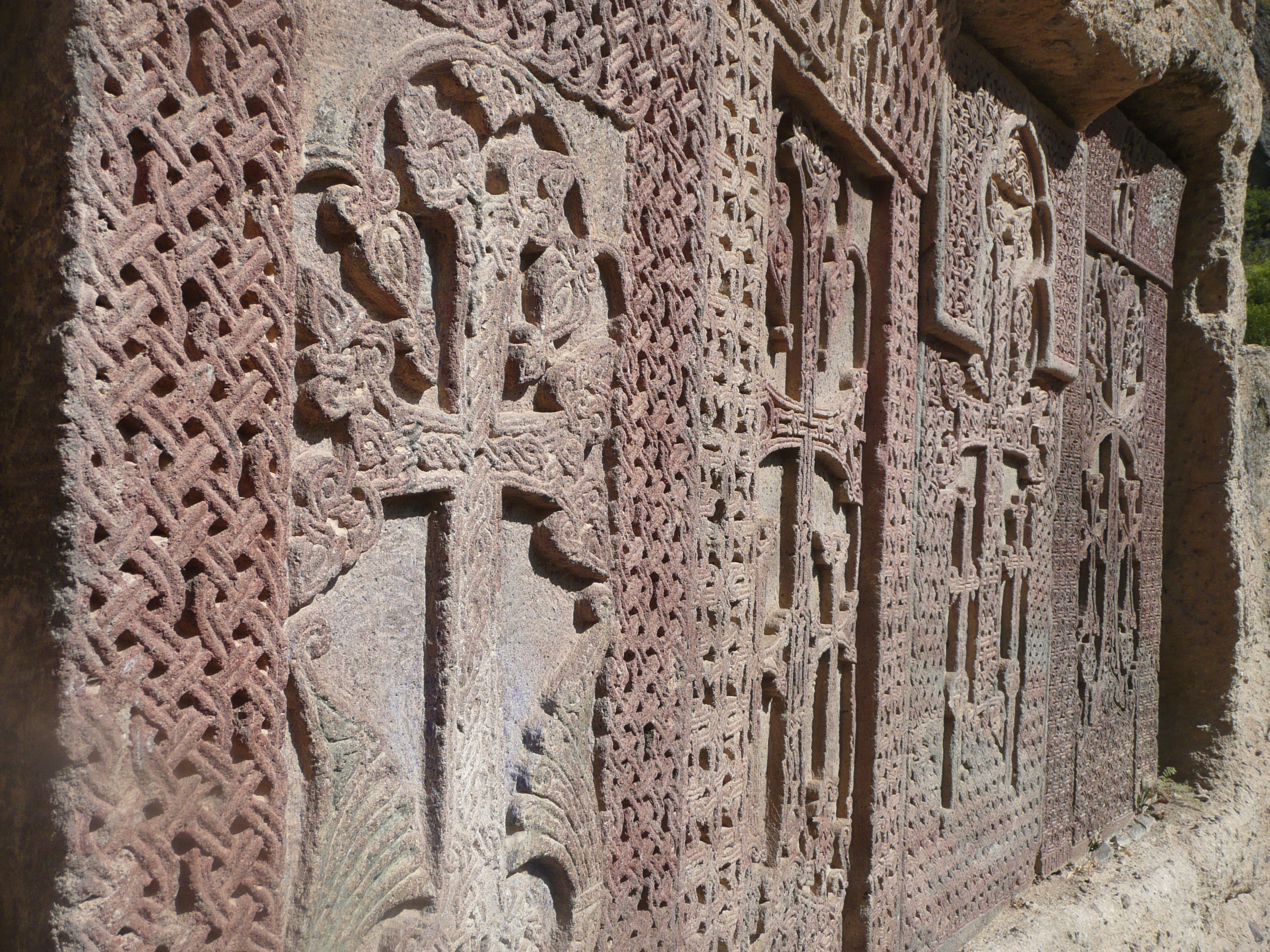
Khatchkars – gravestones stained with beetle dye, still coloured after 800 years of weather. NB: image of the cross is growing out of the pre-christian tree of life symbol
More recent history litters the land, that of Soviet rule and more particularly the failure of its state supported industries since its break up. Vast rusting hulks of chemical works and crumbling ore processing factories lurk on the outskirts of towns, a dismal reminder for their former employees struggling to get by without replacement industries.
Sanahin monastery and its surroundings captured this clash of eras perfectly. Once, only a modest farming community shared the hillside with this 10th century classic of Armenian architecture, but the USSR decided that it would be an ideal environment for workers housing for the copper processing plant in the valley below, each perfectly back-dropped by snow-capped peaks. The flats look as though they were knocked up over a long weekend in 1963, matching every other piece of social housing in the country, with the same grubby, purple tinged facing stone and was probably the last time anyone did any work on them.
This housing scheme occupies that nether world between scrap heap, rubbish tip and art installation, due to the inventive re-use and recycling of the now superfluous rusting metal from the virtually moribund factory.
Hardly a single commercially bought piece of fencing exists, as it has all been cobbled together in a delightfully ramshackle way. This creative skill has been put to use throughout the country in making sheds, garages and even a kids merry-go-round.
Despite the obvious poverty, one taunted by the capitalist sheen of Yerevan, the people seem little inclined to gripe about it to visitors such as me and are always happy to point lost tourists in the right direction even when subjected to my crude manglings of their language. My appallingly pronounced schnorhakalutyon (thankyou) always gets a good response. Children are often eager to try out the results of their English lessons but you find few people who know more than a few words. Neighbouring Georgia has obviously realised that tourism is one route to a more prosperous future and is even offering free English lessons to taxi drivers whereas Armenia seems a little more unsure about the way forward.
Perhaps holding them back is the unseen history, memories of suffering grumbling under the surface of society. In recent times a devastating earthquake in 1988 (sufficiently serious that even Margret Thatcher felt obliged to fly in, probably to make an early bid for post Soviet privatisation) still leaves a traumatic resonance in affected areas. The initial neglect of the matter by state directed Russian media and the poor emergency response were probably the final nails in the coffin for Soviet rule in Armenia. This was soon followed by the Karabkh war – see next post for details. For Britons the Second World War was the last time we had an era defining trauma (unless you include Joe Dolce getting to Number 1 with Shaddup you face in 1981) so it is difficult to get into the mind of a nation that has suffered several.
More important of course is the Genocide: in the death throes of the Ottoman empire, after the First World War the Armenian population of Turkey was either eliminated or exiled at gunpoint. Despite all evidence to the contrary Turkey still refuses to acknowledge the event as a Genocide preferring to quibble about at what official level orders were given, as if it were some kind of spontaneous, undirected event. More importantly even if the powers at the top hadn’t given orders to start it they certainly didn’t give any orders to stop it, therefore guilty as charged. If you are going to get your soldiers to march thousands of people into the Syrian desert without food or water you can hardly say it came as a complete surprise that rather a lot of them ended up dying.
Turkey, if you are listening, stop acting like the guilty brat wailing, “it wasn’t me sir” and let the Armenians lay this piece of history to rest. You are a great nation, with lovely people and much to be proud of, but modern Turks are no more guilty of the Armenian Genocide than I am of Edward the first’s ethnic cleansing of English Jews in 1290, to save having to pay back the debts incurred through costly wars, or the RAF’s incineration of the population of Dresden in 1945.
Will a younger generation of internet savvy globalised Armenians say, “actually we’re not particularly bothered about it, do you fancy a football match Turkey?” Fat chance of that! At least in the immediate future. It’s a sobering reminder that the tragedy of horrific events echo down through the ages and can still affect millions of people, decades or even centuries later. If you have watched the news in the last 10 years or so you will undoubtedly witnessed the birth of a several such clashes, often at the instigation of politicians who appear never to have read a history book in their lives.




